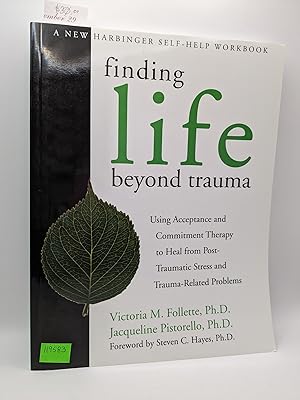Synopsis
Because it views experiential avoidance as a central problem in a range of psychological problems, acceptance and commitment therapy (ACT) is especially well suited to the treatment of trauma-related problems, which often present avoidance as a symptom. This is the first book to adapt ACT principles in a self-care approach readers can use to help overcome the lingering effects of traumatic events. The book helps readers learn to accept the unpleasant feelings they associate with past experiences. It also shows them why strategies that have them "control" these negative feelings can have severe long-term consequences, such as substance abuse and chronic anxiety - especially when the attempts at control result in the avoidance of normal activities and situations. Instead of control, the book encourages readers to develop psychological flexibility and a willingness to embrace "clean" painful experience that is a necessary and unavoidable part of living. By committing to live in ways that really matter to them despite painful experiences, readers move beyond problems with past trauma. In the end, they will discover that life after trauma was very much worth the bumps and scrapes they receive on the way to living it.
About the Author
Victoria M. Follette, PhD, is a foundation professor at the University of Nevada, Reno, and a clinical scientist specializing in interpersonal violence and body image problems. Jacqueline Pistorello, PhD, is a clinical and research faculty member at the University of Nevada, Reno Counseling Services, where she has worked with college students for fifteen years. She specializes in the application of two mindfulness and acceptance-based behavioral approaches with college students: acceptance and commitment therapy (ACT) and dialectical behavioral therapy (DBT). Pistorello has received grants from the National Institutes of Health to research the prevention and treatment of mental health problems among college students using ACT and DBT. Steven C. Hayes, PhD, is Nevada Foundation Professor in the department of psychology at the University of Nevada, Reno. An author of forty-one books and more than 575 scientific articles, he has shown in his research how language and thought leads to human suffering, and has developed acceptance and commitment therapy (ACT)--a powerful therapy method that is useful in a wide variety of areas.
"About this title" may belong to another edition of this title.
